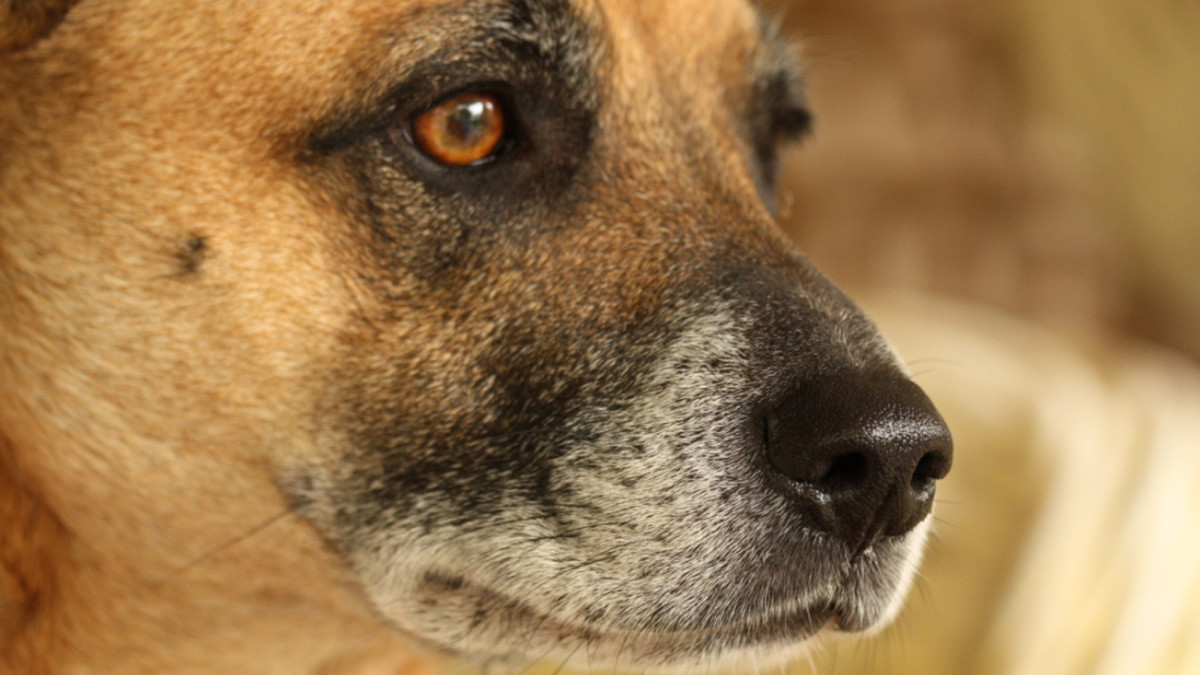
Why Is My Senior Dog Pooping in the House?
My Old Dog Started Pooping Inside
“Why would Sammy, my 11-year-old shepherd mix, start to poop inside? I let him out before I go to sleep, and he pees. (I stay up late to let him go out around midnight.) It’s not diarrhea; it’s very solid poop, sometimes left by the door.
Yesterday when he was going to lie down on his bed, he had one poop (solid again), and it seemed to just fall out—he was not squatting. I checked his behind, and there was nothing on his bushy tail or butt.
He’s never done this before. I’m worried. I’ll get to the vet ASAP. He’s due for his rabies shot anyway. He’s not crying or whining as if he’s in pain. I don’t know what to do. Thank you!”—Rebecca
Start With an Exam
Yes, you are correct that Sammy needs to be examined by your local vet. There are several possibilities:
- Cognitive dysfunction: When a dog is house-trained but then starts going in the house, that is one common sign of dementia. Other signs of disorientation are also common. Besides becoming disoriented in their environment, some dogs just go into the house without even being aware it is happening.
- Arthritis: When dogs are in pain from arthritic changes and no longer able to squat, they may become constipated and end up passing stool at inappropriate locations and times. Your vet will do an examination to see the changes and your dog may just need an anti-inflammatory to control this problem, or may need a special diet and other types of long-term care.
- Lack of bowel control: There is still some question as to whether this is just another form of dementia or a senile change that has nothing to do with the brain. Dogs become constipated more often as they age, are less flexible and not as able to squat, and may decide that they are not going to defecate until they absolutely have to.
- Muscle loss: If you only let your dog out in the front yard, and he does not get any exercise, his muscles tend to grow weak. Some dogs do not have enough muscle mass to even squat normally and need a diet with increased protein and mild exercise (like short walks) to rebuild their muscle tone.
- Unrelated GI disease: There are numerous health problems that will cause a dog to defecate inside. Most of them will be associated with loose stools but not always so your veterinarian will want to rule out IBD, parasites, and internal diseases before proceeding with therapy.
- Cancer: This is not something I want you to worry about until the exam, but it does need to be mentioned. In some senior dogs, a rectal tumor will cause the anus to be open, and the stool just falls out. Since you said you already looked, this might be internal, but as I mentioned, do not even worry about it until the exam, as the other problems are much more likely.
Dealing With Dementia
If your veterinarian decides that your dog does have cognitive dysfunction, please do not despair. This is an area of active research, and every year, better medications are being developed to help dogs suffering from dementia. If you look at this article on dog dementia you will find several suggestions on how to help Sammy at home.
If you do not use one of the new medications your veterinarian suggests, then short walks, which it sounds like you are already doing, are the best way to keep him interested in his environment and encourage him to defecate outside the house. (If you are just letting him out in the yard, this is not enough, as you actually need to take him for a walk.)
I also recommend a homemade diet and several alternative medications, which you can read about in this article.
Reconsider Vaccinating for Rabies
Please discuss the rabies vaccination with your veterinarian. I am not sure how late it is, and legally, you do need to give a booster in most states, but it may be a good idea to delay this until later. Vaccinations are best given to healthy dogs, and there can be several severe side effects from rabies vaccinations given to ill seniors. In the video below, the veterinarian discusses some of the problems associated with the vaccine.
I hope Sammy does well. Please let us know if you have any other questions about his treatment.
This article is not meant to substitute for diagnosis, prognosis, treatment, prescription, or formal and individualized advice from your veterinarian. Animals exhibiting signs and symptoms of distress should be seen by a veterinarian immediately.
© 2024 Mark dos Anjos, DVM


